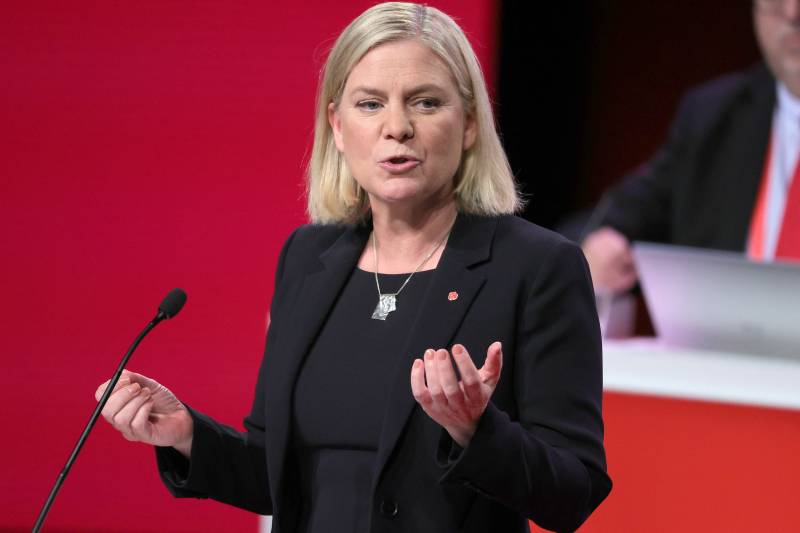Social Democrat Andersson becomes Sweden's first woman PM

Stay tuned with 24 News HD Android App

Sweden's parliament elected Finance Minister Magdalena Andersson as the country's first woman prime minister on Wednesday, but she immediately faced a major setback that risks toppling her before she even takes office.
Andersson was elected by the slimmest possible margin after clinching a last-minute deal with the Left Party to raise pensions in exchange for its backing in Wednesday's vote.
Andersson, 54, who took over as leader of the Social Democrats earlier this month had earlier received the support of the Social Democrats' coalition partner the Greens, as well as the Centre Party.
Despite being a nation that has long championed gender equality, Sweden has never had a woman as prime minister.
Andersson called it "a special day", coming 100 years after Sweden allowed female suffrage.
All other Nordic countries -- Norway, Denmark, Finland and Iceland -- have seen women lead their governments.
However, Andersson will now head a weak minority government whose hands will be tied on many issues.
Just hours after her election, she faced a major setback when the Centre Party withdrew its support for her budget, due to the concessions made to the Left.
Andersson will now have to govern with the budget presented by the opposition conservative Moderates, Christian Democrats and far-right Sweden Democrats, which was adopted by parliament.
She was undeterred, saying "I think I can govern the country regardless".
But in a heavier blow, the junior coalition Greens Party said it was unsure it could stay in government with the opposition's budget.
It fears a proposed tax cut on petrol will lead to higher emissions.
"Now the situation is different, so we have to decide what to do," Greens leader Per Bolund told reporters.
New vote?
If the Greens pull out, parliament would have to hold a new prime ministerial vote, as Wednesday's was based on Andersson heading a coalition made up of her Social Democrats and the Greens.
On Wednesday, a total of 117 members of parliament had voted for her, while 57 abstained, 174 voted against and one was absent.
Under Sweden's system, a prime ministerial candidate does not need the support of a majority in parliament, they just need to not have a majority -- or 175 votes -- against them.
Andersson succeeds Stefan Lofven, who resigned on November 10 after seven years as prime minister in a widely expected move aimed at giving his successor time to prepare for the country's September 2022 general election.
She is scheduled to formally take over and present her government on Friday.
The change in leadership comes as the Social Democrats currently hover close to their lowest-ever approval ratings with elections less than a year away.
The right-wing opposition, led by the conservative Moderates, has in recent years inched closer to the anti-immigration Sweden Democrats and hopes to govern with its informal backing.
'Pragmatic' technocrat
After being confirmed as the Social Democrats' leader in early November, Andersson, a former junior swimming champion often described as "pragmatic" and a "technocratic bureaucrat", outlined her three political priorities.
She said she wanted to shift away from the recent privatisation of the welfare sector -- schools, healthcare and elderly care -- and aimed to make Sweden a global role model in climate transition.
And she vowed to end the segregation, shootings and bombings that have plagued the country in recent years, usually due to gangland rivalries or organised criminals battling over the drug market.
The violence has mainly hit disadvantaged neighbourhoods with large immigrant populations, but has increasingly spilt over into other areas.
Crime and immigration are expected to be among Swedes' main concerns in next year's election.
Lund University political analyst Anders Sannerstedt predicted it would be a "close race".
"Right now four parties to the right command 174 seats (in parliament), while the four parties to the left have 175 seats. Recent polls show roughly the same," he said.
